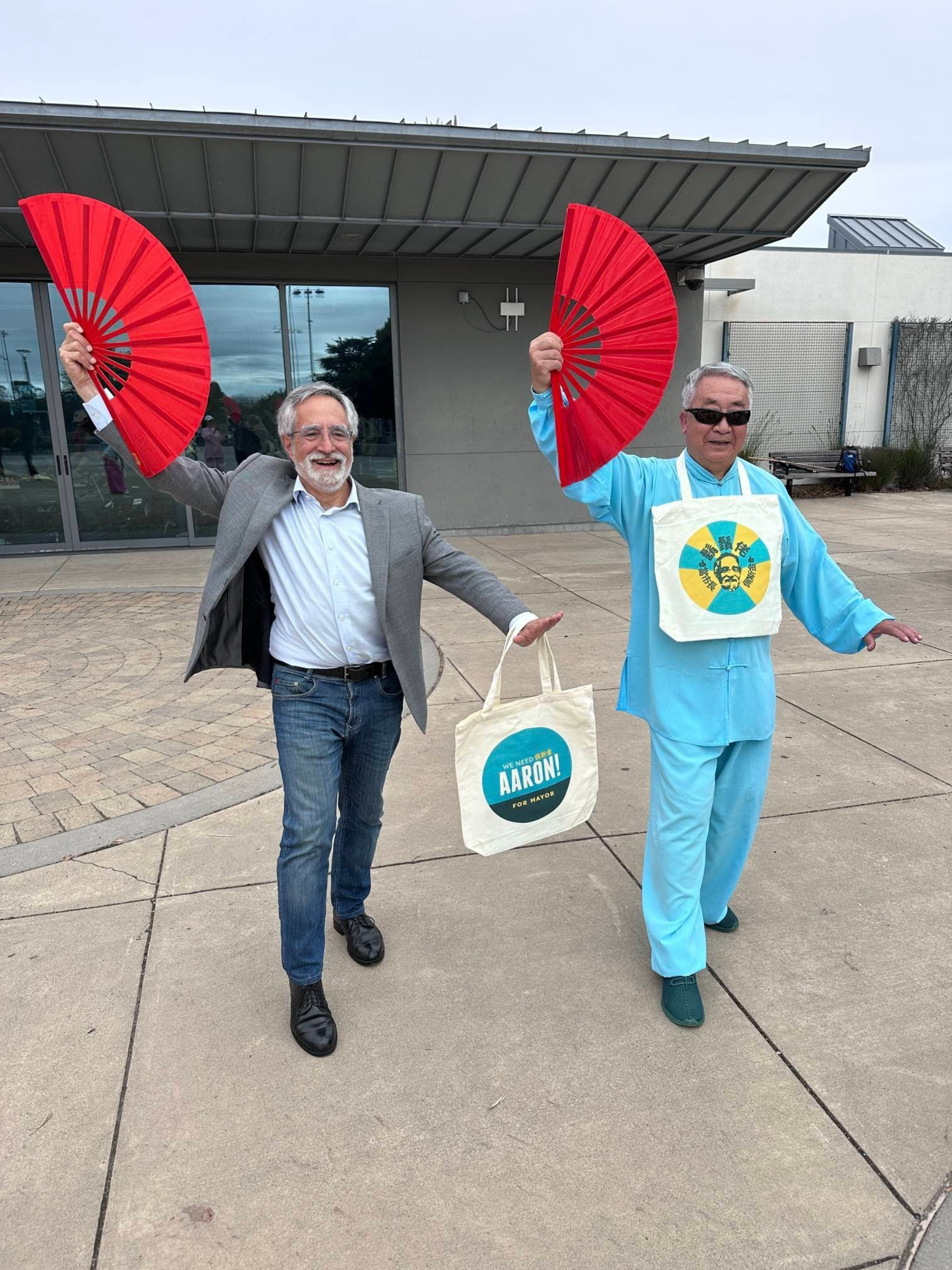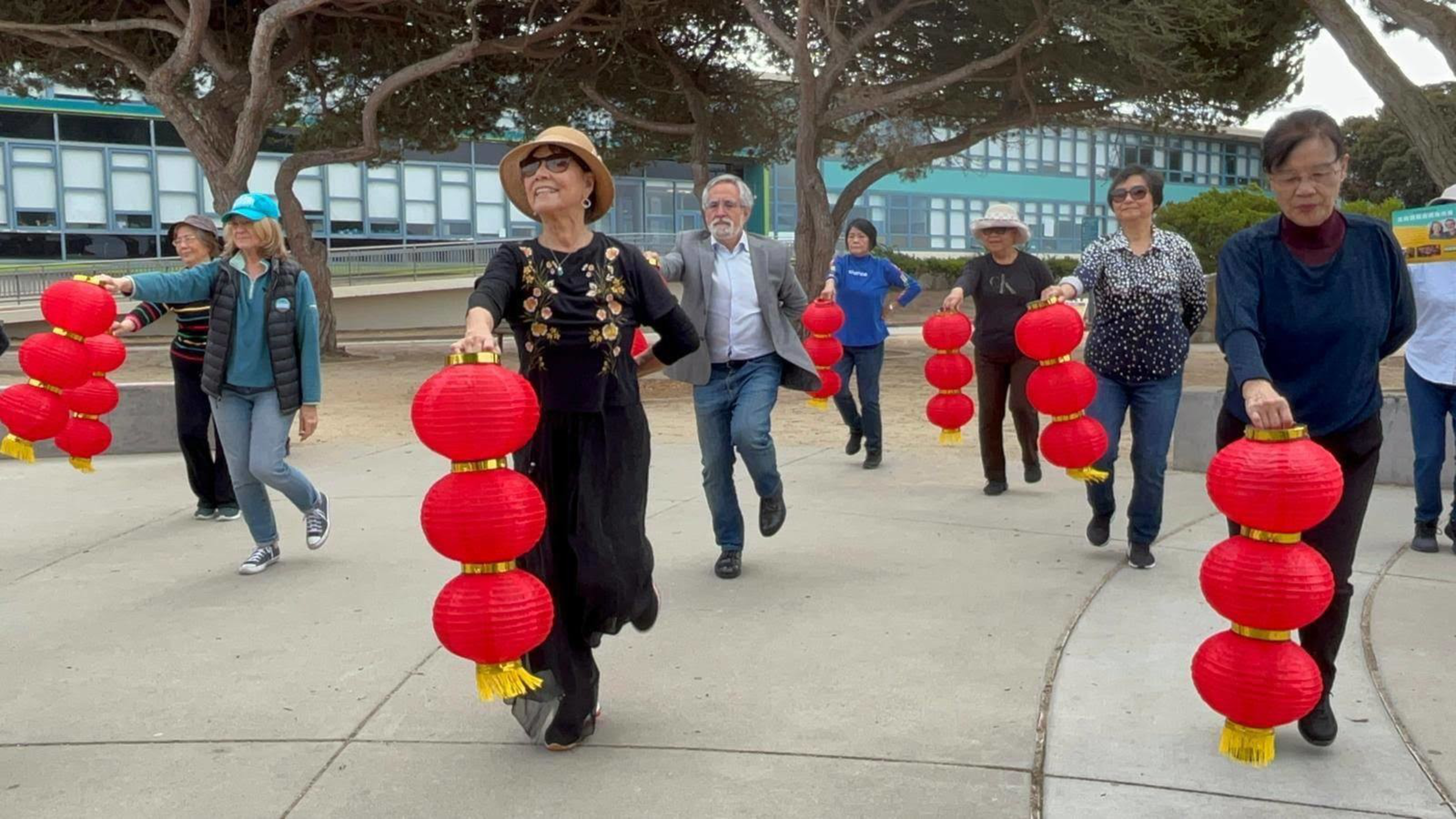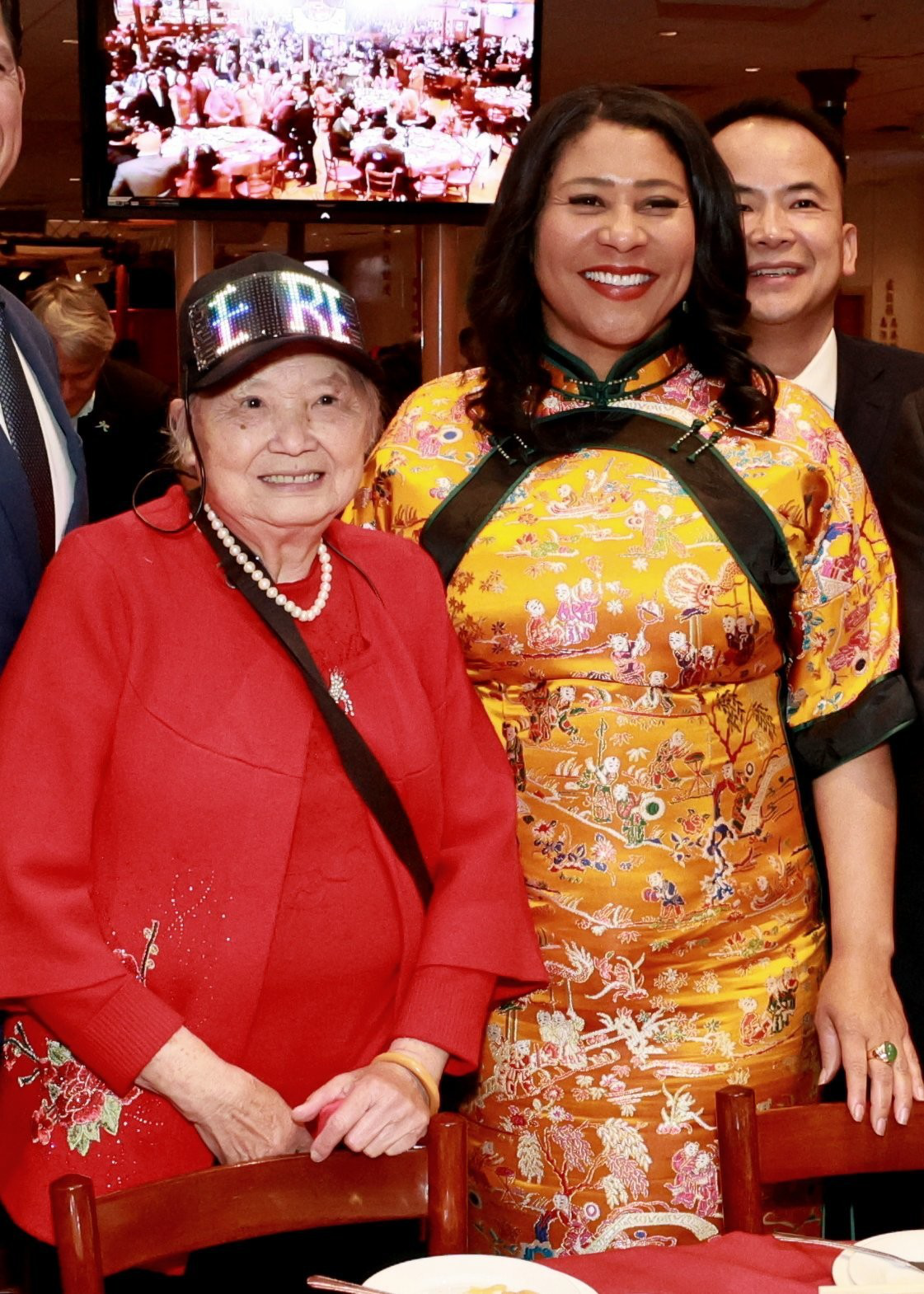Starting Oct. 1, Daniel Lurie’s smiling face has appeared every day on the front page of Sing Tao Daily, a major Chinese-language newspaper in San Francisco.
“Daniel ‘Lo Wai’ for San Francisco’s new mayor,” proclaims the political ad, featuring the mayoral candidate in his signature white shirt and his Chinese name against a light blue background.
While Aaron Peskin, a progressive mayoral candidate, may not have the same financial resources as the Levi’s heir — after all, front-page advertising isn’t cheap — he’s making headlines his own way. The Oct. 14 edition of Sing Tao highlighted some lively photos of Peskin (opens in new tab) practicing kung fu and Chinese dancing in a story about his campaign activity.


As candidates for mayor aggressively court Chinese voters, local Chinese-language media has emerged as a crucial battleground for both news and campaign advertisements. This parallel media ecosystem operates distinctly from mainstream outlets, often providing more colorful and culturally nuanced coverage than is typically found in English-language media.
Earlier this year, former interim mayor and mayoral candidate Mark Farrell visited Chinatown’s famous Vital Tea Leaf, which is known for tea tasting among tourists. The tea masters lectured Farrell on appreciating tea leaves, and he brewed and drank some tea before joining Chinese monks for a spiritual ceremony.
A WeChat public account called San Francisco Affairs(金城杂事) later published an article (opens in new tab) titled “Mark Farrell learns the true meaning of life and work from the Chinese tea ceremony.” In the story, Farrell was quoted saying, “I grew up eating dim sum. The long-standing Chinese tea ceremony is an important part of the extensive and profound Chinese food culture.”

Farrell’s philosophical takeaway? “Only by doing the right thing at the right time, using the right method, can you get good results,” he stated in the article.
David Ho, a political consultant, notes that the Chinese community stands unique among ethnic minorities in maintaining a vibrant in-language media industry, encompassing print publications, television, and social media platforms.
“The messaging to Chinese media is more sophisticated,” Ho said. “Because you need to understand the community’s needs, know their interests, and express ideas in ways the community will understand.”
The priority of candidates’ ads varies across publications. During October, World Journal, another major Chinese newspaper, has run Peskin campaign ads promoting tax cuts to boost the economy (opens in new tab). Other ads promoting Breed, paid for by billionaire Michael Bloomberg, focus on cracking down on crime (opens in new tab).
“Every political era has its moment, and now it’s public safety,” Ho said. No wonder Lurie told Sky Link TV his favorite superhero is Batman.

According to SF Ethics (opens in new tab), Sing Tao Daily has received over $50,000 in campaign advertising revenue, with other Chinese media outlets collecting tens of thousands from various candidates. The actual figures are likely higher, considering indirect payments through media advertising agents and data reporting delays.
WeChat has become increasingly influential for reaching Chinese-speaking voters, extending beyond conventional media channels as political campaigns invest in the platform. Candidates are more cautious with their messaging after a 2018 incident when school board candidate Josephine Zhao was caught making conflicting statements (opens in new tab) about gender-neutral bathrooms on WeChat versus English-language media.
Perhaps one of the most talked-about incidents in Chinese political circles this election season involved Breed’s “Chinese grandmother.” After the 86-year-old Wong Tow Kuk was spotted wearing a Farrell hat (opens in new tab), she appeared days later at a Chinatown banquet to support Breed, wearing an LED display showing “Reelect London Breed” in both Chinese and English.

The next day, Sing Tao Daily captured the moment with the headline: (opens in new tab) “The protagonist of the ‘hat controversy’ made a shining appearance.”
Coverage often takes on a personal touch. In one Sing Tao article on Oct. 21 (opens in new tab), candidates shared their favorite Chinese dishes: Farrell liked xiaolongbao, Lurie favored siu mai, Peskin praised the braised beef from the Harborview restaurant on the waterfront, Supervisor Ahsha Safai expressed love for ha gau (shrimp dumplings), and Breed is big fan of salt and pepper pork.
What’s Breed’s vacation plan if she survives this tough reelection fight? You may never find the answers in The Standard or the San Francisco Chronicle. But she will tell the Chinese media.
“I have a dream to go on a luxury vacation in the Maldives,” she told Sky Link TV (opens in new tab). “Maybe I will reward myself after I win this election and blow up my credit cards.”
